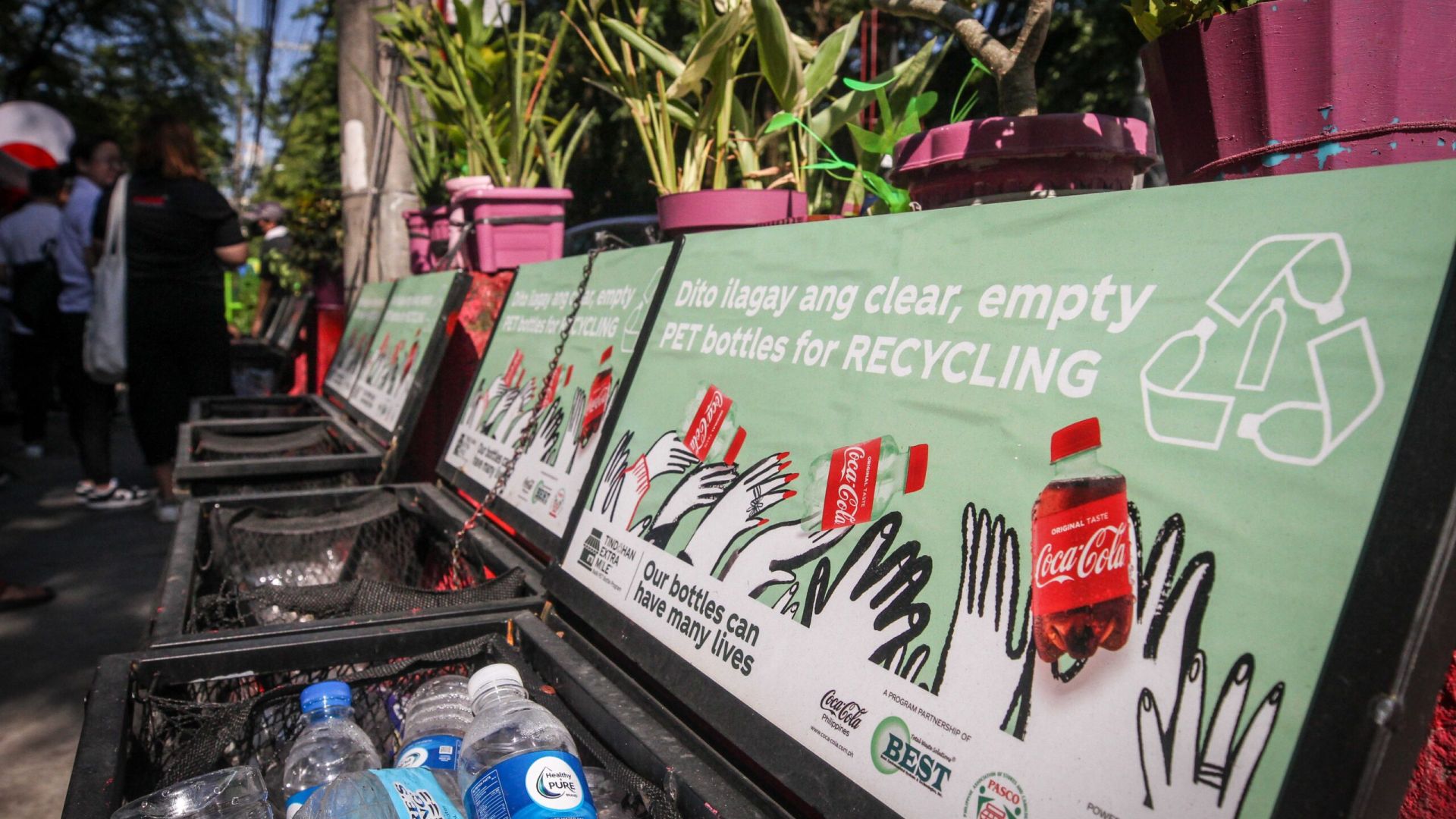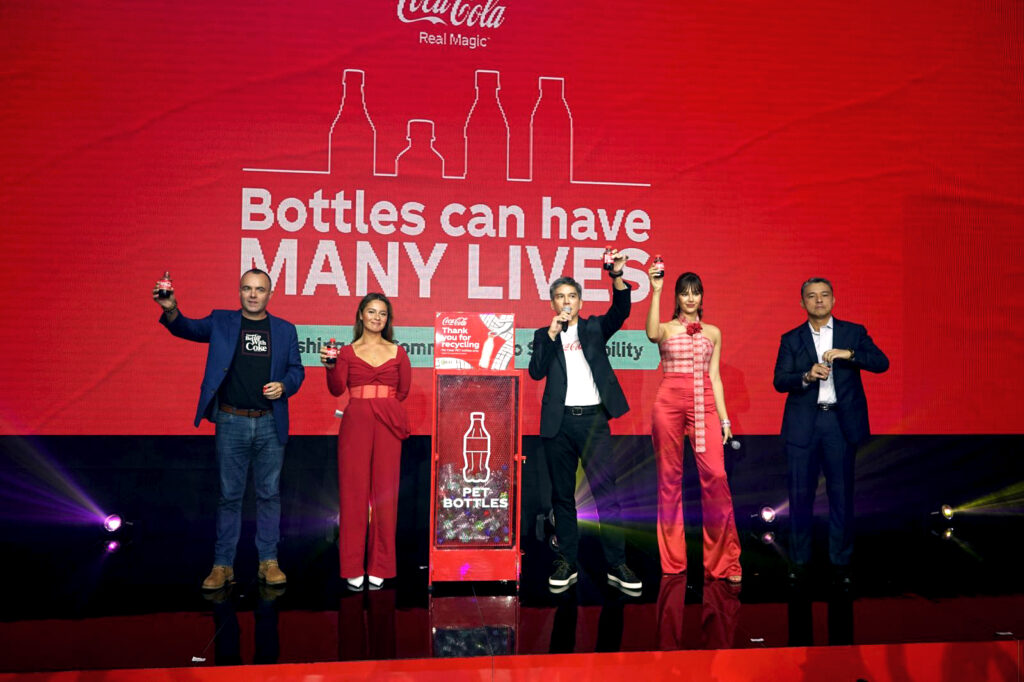
Coca-Cola Philippines concludes 2023 with significant progress in its commitment to environmental sustainability and enters 2024 with an increased resolve to accelerate its efforts. This year, the company continued to strengthen its initiatives to meet its World Without Waste targets and launched “May Ikabobote Pa”, a brand-led initiative aiming to inspire behavior change among consumers regarding recycling. This includes expanding partnerships with organizations sharing a commitment to advancing a circular economy for plastic packaging.
The Coca-Cola Company also unveiled its 2030 Water Security Strategy, which aims to achieve 100% circular water use across 175 facilities globally. Additionally, the company plans to partner with like-minded organizations to enhance the health of 60 critical watersheds and return a cumulative total of 2 trillion liters of water to nature and communities between 2021 and 2030.
“We are grateful for all our projects this year, which demonstrate our dedication to conducting our business more sustainably and empowering the communities where we operate and serve,” said Tony del Rosario, President of Coca-Cola Philippines. “We recognize our responsibility to continue making a positive impact in communities and the environment and acknowledge that we still have a long way to go and that we cannot do this alone. We encourage everyone to join us in these efforts.”
Advancing a circular economy on plastic packaging
Coca-Cola Philippines took another significant step toward a circular economy for plastic packaging by introducing more bottles made from 100% recycled PET plastic (rPET), excluding caps and labels. In September this year, the company introduced rPET packaging for Coca-Cola Original in 190ml and 390ml and Wilkins Pure in 500ml, in addition to Sprite 500ml, which was introduced in 2019.
The announcement came on top of the launch of “May Ikabobote Pa,” the company’s new consumer engagement initiative aiming to inform and engage consumers about the actions they can take to recycle their empty plastic bottles.
“May Ikabobote Pa” is brought to life by new rPET labels featuring a call to action, ‘Recycle Me Again,’ and a QR code that directs users to the Coca-Cola Sustainability Hub. This hub provides information about the company’s recycling program, including a map displaying the locations of over 2,800 recycling drop-off points across the country, in collaboration with more than 60 partners. The hub also provides relevant updates on the company’s waste management initiatives. Moreover, “May Ikabobote Pa” offers enhanced consumer recycling experiences, digital-led communications, and partnerships within selected 7-Eleven and Shel outlets.
Leveraging partnerships for effective waste collection and capacity building
Since the launch of The Coca-Cola Company’s World Without Waste global strategy in 2018, Coca-Cola Philippines has formed strategic alliances with the government, non-governmental organizations, and civil society to help establish a circular economy for plastic packaging in the country.
One of the company’s goals is to make recycling easier and more accessible for consumers by expanding its over 2,800 recycling drop-off points across the country through increased partnerships with like-minded organizations and institutions. This includes enabling the participation of micro-entrepreneurs, particularly carinderias and sari-sari stores, through the Tapon to Ipon and Tindahan Extra Mile Balik PET Bottle programs. Both programs help create a community-backed circular economy for plastic packaging while promoting economic empowerment among micro-retailers.
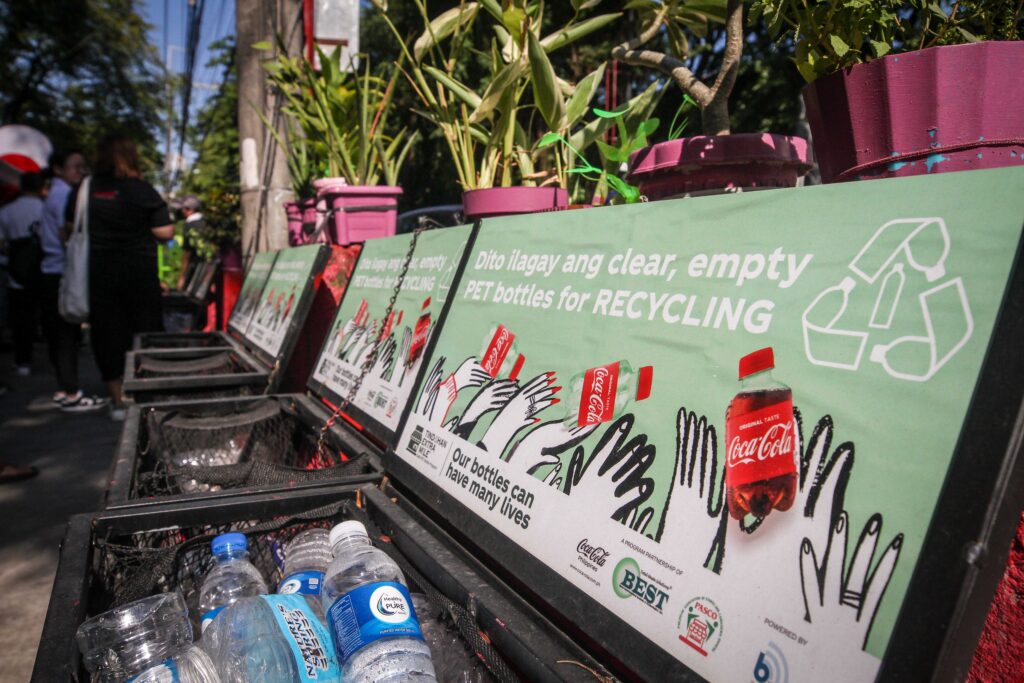
For 2024, the company aims to expand the number of its partner carinderias and sari-sari stores to 2,400 in Metro Manila and nearby areas. Meanwhile, Coca-Cola Philippines’ bottling arm, Coca-Cola Beverages Philippines (CCBPI), has inaugurated over 700 Tapon to Ipon store hubs in 170 cities and municipalities across the country. CCBPI has also partnered with the provincial governments of Iloilo, Davao del Sur, and Camiguin for the large-scale collection of recyclable plastic bottles.
Coca-Cola Philippines also helps improve the welfare of informal waste sector workers by supporting the work of social entrepreneur Plastic Bank. Since 2021, the partnership has so far activated 38 waste collection locations and 651 collection community members in the South Luzon area which has resulted in the collection of 546,000 kilograms of post-consumer bottles for recycling.
Helping preserve and improve water resources
In the Philippines and around the world, people are experiencing the impact of a warming planet through changes in water—from floods to droughts to rising temperatures in oceans. These changes adversely affect farming communities, create challenges in food production, and make it difficult for hundreds of communities to access safe and clean water for drinking and sanitation.
With a presence in more than 200 countries and territories, The Coca-Cola Company recognizes its responsibility to protect local water resources and help people who live in places that face water scarcity. Coca-Cola gives priority to communities near its facilities, urban hubs where its products are sold, and rural farming areas where it sources and grows its ingredients.
In the Philippines, Coca-Cola champions water security through efficient water use in manufacturing, improving watershed health, and helping communities access safe and clean water.
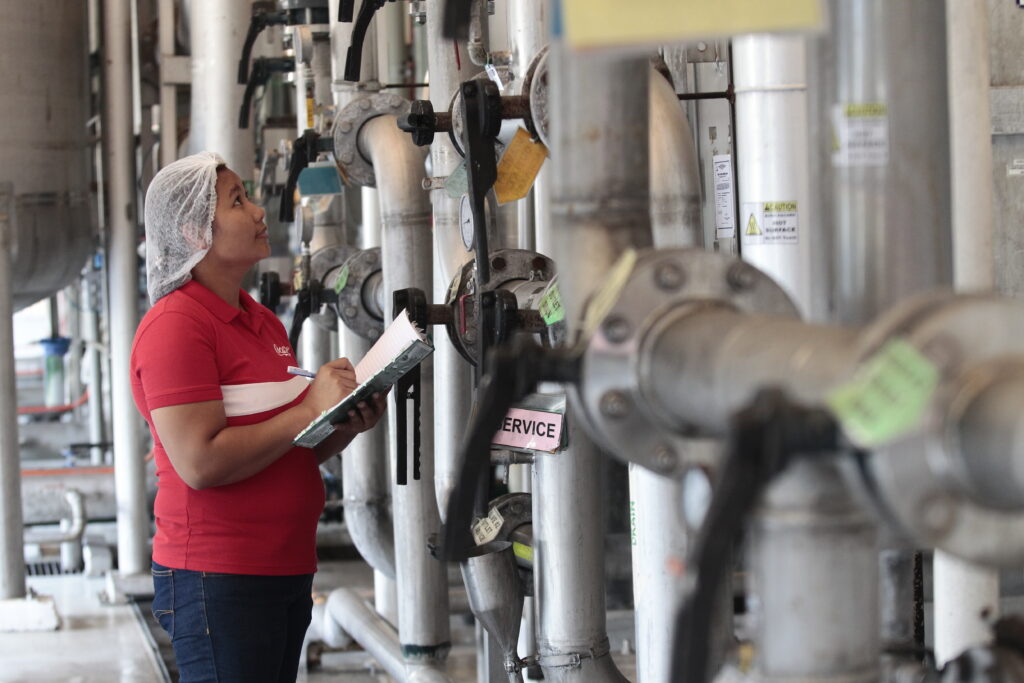
Bottling partner CCBPI has improved its national water use efficiency across 18 manufacturing plants throughout the country through stringent water-saving initiatives. From 2015 to 2022, CCBPI saved approximately 11 million cubic meters of water, equivalent to about 4,400 Olympic-sized swimming pools.
Meanwhile, Coca-Cola Foundation Philippines prioritizes nature-based solutions as a way to conserve watersheds using natural processes such as reforestation, wetland restoration, and the promotion of sustainable agriculture.
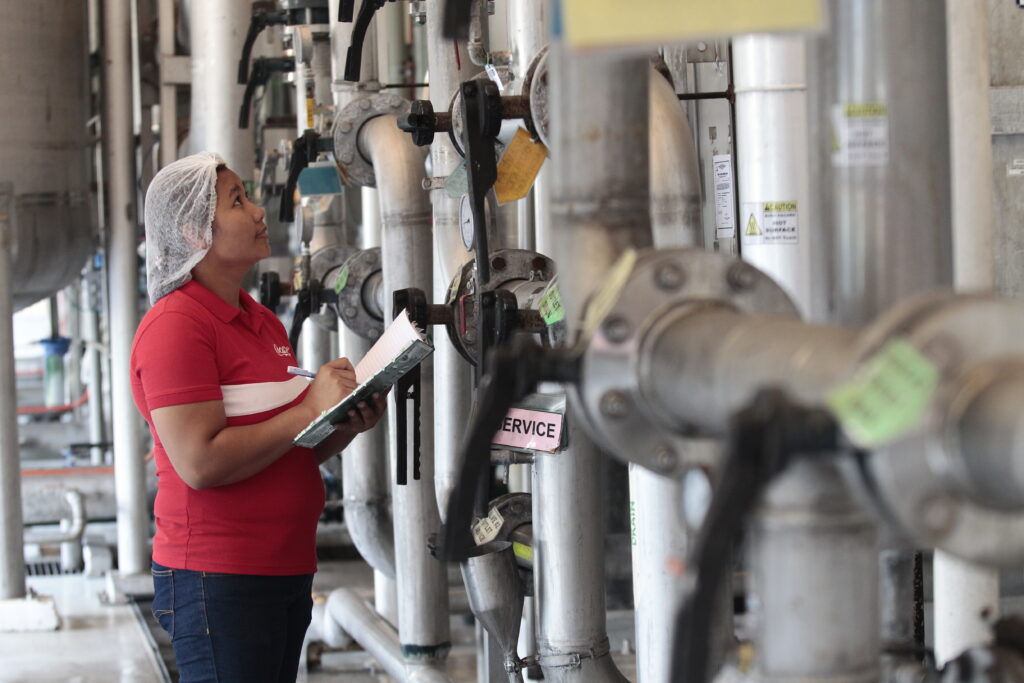
Through the Foundation, Coca-Cola Philippines collaborates with more than 25 partners nationwide to return the same amount of water used in producing finished products to nature and communities. This collaboration aims to enhance access to water for drinking and sanitation in the most impacted communities.
“The Coca-Cola Company has been in the Philippines for the past 111 years. We stay true to our company’s purpose of refreshing the world while making a difference through loved brands, done sustainably, for a better-shared future,” said del Rosario. “As we look ahead, we are dedicated to serving Filipino consumers their favorite beverage brands and building a thriving and sustainable business that will endure for many more years.”
Know more about Coca-Cola Philippines and its programs at coca-cola.com/ph/en or follow us on Facebook, Instagram, YouTube, and Twitter.


